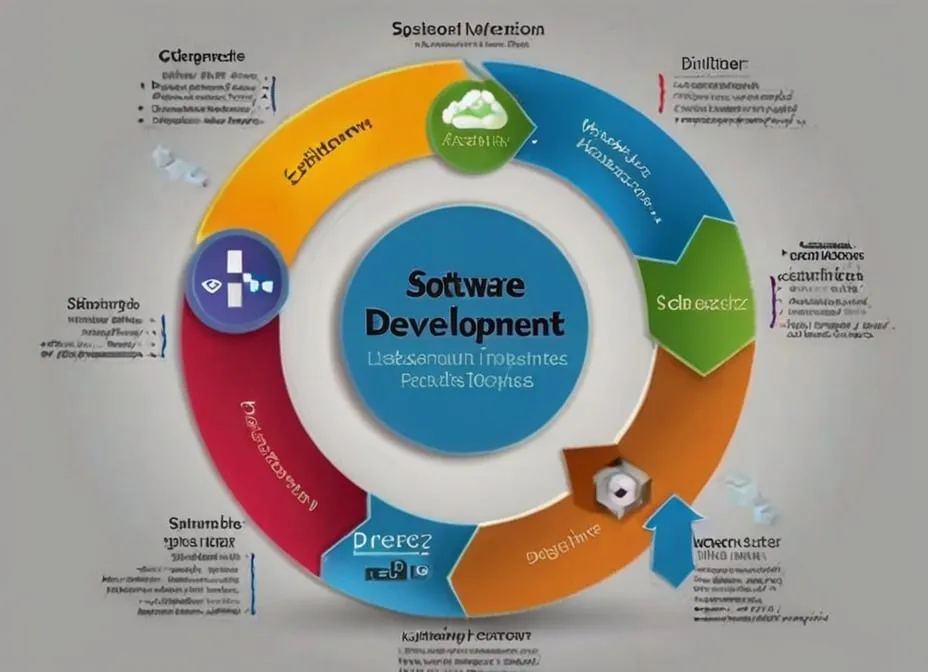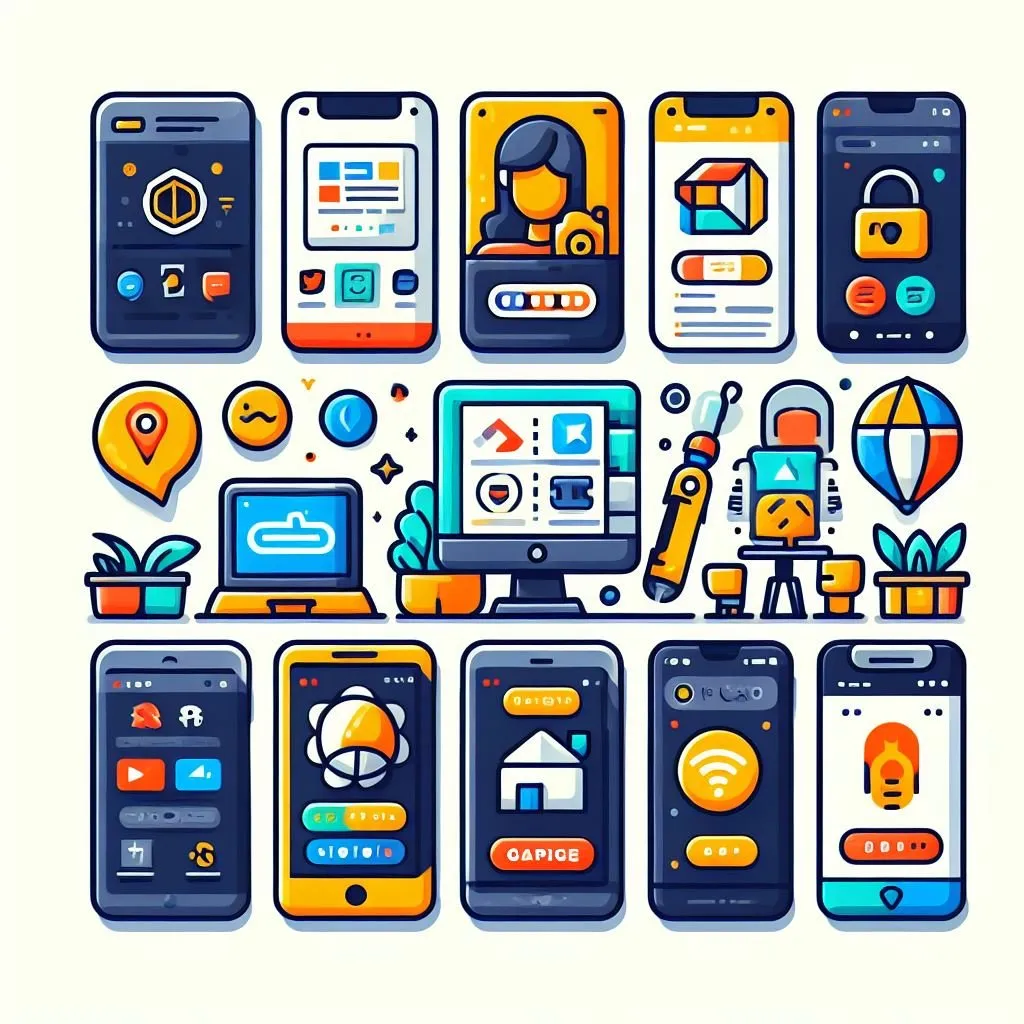AI for Sales and Lead Generation: The Ultimate Guide
1. Introduction: The Rise of AI in Sales and Marketing
The world of sales and marketing is undergoing a dramatic transformation, driven by the rapid advancement of artificial intelligence (AI). AI is rapidly changing the way businesses interact with customers, generate leads, and close deals. By automating tasks, providing personalized experiences, and offering data-driven insights, AI empowers sales teams to work smarter and achieve better results.
1.1 The Changing Landscape of Sales and Marketing
Today’s customers are more informed and have higher expectations than ever before. They expect personalized experiences, relevant content, and seamless interactions across multiple channels. Traditional sales and marketing methods are struggling to keep up with these evolving demands.
1.2 The Potential of AI: Increased Efficiency and Effectiveness
AI offers a powerful solution to address these challenges. AI-powered tools can automate repetitive tasks, analyze vast amounts of data, and personalize interactions with customers. This allows sales teams to focus on building relationships and closing deals, while AI handles the heavy lifting.
1.3 Overcoming Skepticism and Embracing AI Solutions
Despite the clear potential of AI, some businesses remain hesitant to adopt these new technologies. Concerns about cost, complexity, and job displacement are common. However, the benefits of AI are undeniable, and businesses that fail to embrace AI risk falling behind their competitors.
2. How AI is Transforming Lead Generation
Lead generation is a critical aspect of any successful sales process. AI is transforming lead generation by making it more efficient, targeted, and effective.
2.1 Identifying and Targeting Ideal Customers with AI
AI can analyze vast amounts of data to identify patterns and predict which prospects are most likely to convert. This allows sales teams to focus their efforts on the most promising leads, increasing the efficiency and effectiveness of their outreach efforts.
2.2 AI-Powered Content Creation and Personalization
AI can be used to create personalized content that resonates with individual prospects. This includes tailoring email messages, website content, and social media interactions to each prospect’s unique interests and needs.
2.3 Optimizing Lead Capture and Qualification Processes
AI-powered chatbots and virtual assistants can engage with website visitors, qualify leads, and schedule appointments. This frees up sales teams to focus on more complex tasks while ensuring that no potential lead falls through the cracks.
2.4 Predicting Lead Behavior and Conversion Likelihood
AI can analyze past customer behavior and identify patterns to predict which leads are most likely to convert. This allows sales teams to prioritize their efforts and focus on the leads with the highest potential for success.
3. AI-Driven Sales Automation and Optimization
AI is not only transforming lead generation but also revolutionizing the way sales are conducted. By automating tasks and providing data-driven insights, AI empowers sales teams to work smarter and close more deals.
3.1 Streamlining Sales Workflows and Processes
AI can automate many repetitive and time-consuming tasks in the sales process, such as scheduling meetings, sending follow-up emails, and updating customer records. This frees up sales reps to focus on building relationships and closing deals.
3.2 AI-Powered Sales Assistant and Chatbots
AI-powered sales assistants and chatbots can handle basic customer interactions, answer questions, and qualify leads. This allows sales reps to focus on more complex tasks and high-value customers.
3.3 Personalized Sales Outreach and Follow-Up
AI can analyze customer data and behavior to personalize sales outreach and follow-up communications. This ensures that each customer receives relevant information and offers, increasing the chances of conversion.
3.4 Data-Driven Sales Forecasting and Performance Analysis
AI can analyze historical sales data and identify patterns to predict future sales performance. This allows sales teams to adjust their strategies and allocate resources more effectively.
4. Benefits of Using AI for Sales and Lead Generation
Implementing AI in sales and lead generation offers numerous benefits for businesses of all sizes.
4.1 Increased Lead Generation and Conversion Rates
AI-powered tools can help businesses generate more qualified leads and improve conversion rates by targeting the right prospects with the right message at the right time.
4.2 Improved Sales Productivity and Efficiency
By automating tasks and providing data-driven insights, AI allows sales teams to work smarter and focus on activities that drive revenue.
4.3 Enhanced Customer Experience and Engagement
AI can personalize customer interactions and provide relevant information and offers, leading to a more positive customer experience and increased engagement.
4.4 Data-Driven Insights and Decision Making
AI provides sales teams with valuable data and insights that can be used to improve decision-making and optimize sales strategies.
5. Challenges and Considerations of Implementing AI
While AI offers significant potential, there are also challenges and considerations to keep in mind when implementing AI in sales and lead generation.
5.1 Data Quality and Integration Issues
AI relies on high-quality data to function effectively. Businesses need to ensure their data is accurate, complete, and properly integrated across different systems.
5.2 Ethical Considerations and Bias in AI
AI algorithms can be biased based on the data they are trained on. Businesses need to be aware of potential biases and take steps to mitigate them.
5.3 Cost and Implementation Challenges
Implementing AI solutions can require significant investment in technology and expertise. Businesses need to carefully consider the costs and benefits before implementing AI.
5.4 The Need for Human Oversight and Expertise
AI is a powerful tool, but it is not a replacement for human expertise. Businesses still need skilled sales professionals to manage relationships and close deals.
6. Best Practices for Leveraging AI in Sales and Lead Generation
To maximize the benefits of AI in sales and lead generation, businesses should follow these best practices:
6.1 Defining Clear Goals and Objectives
Before implementing AI, businesses need to clearly define their goals and objectives. This will help them choose the right AI tools and measure the success of their AI initiatives.
6.2 Selecting the Right AI Tools and Solutions
There are many different AI tools and solutions available. Businesses need to carefully evaluate their needs and choose the tools that best meet their specific requirements.
6.3 Ensuring Data Quality and Security
AI relies on high-quality data to function effectively. Businesses need to ensure their data is accurate, complete, and secure.
6.4 Training and Upskilling Sales Teams
AI is a powerful tool, but sales teams need to be trained on how to use it effectively. Businesses should invest in training and upskilling their salesforce to maximize the benefits of AI.
6.5 Monitoring and Measuring Performance
It is crucial to monitor and measure the performance of AI initiatives to ensure they are achieving the desired results. Businesses should track key metrics and adjust their strategies as needed.
7. The Future of AI in Sales and Lead Generation
AI is rapidly evolving, and its impact on sales and lead generation is only going to increase in the coming years.
7.1 Advancements in AI Technology and Capabilities
AI technology is constantly improving, with new algorithms and capabilities being developed all the time. This will lead to even more powerful and effective AI tools for sales and lead generation.
7.2 The Integration of AI with Other Technologies
AI will be increasingly integrated with other technologies, such as CRM systems and marketing automation platforms. This will create a more seamless and efficient sales and marketing ecosystem.
7.3 The Evolving Role of Salespeople in the AI Era
AI will not replace salespeople, but it will change the nature of their work. Salespeople will need to focus on building relationships, providing strategic guidance, and handling complex deals, while AI handles more routine tasks.
8. FAQs
Q1: What are some examples of AI tools for sales and lead generation?
A1: Some examples include chatbots, predictive lead-scoring tools, sales forecasting software, and AI-powered content creation platforms.
Q2: How much does it cost to implement AI in sales and lead generation?
A2: The cost of implementing AI varies depending on the size and complexity of your needs. However, there are AI solutions available for businesses of all budgets.
Q3: Will AI replace salespeople?
A3: No, AI will not replace salespeople. However, it will change the nature of their work, allowing them to focus on more strategic and relationship-building activities.
Q4: How can I get started with AI in sales and lead generation?
A4: Start by defining your goals and objectives, then research and evaluate different AI tools and solutions. You may also want to consider partnering with an AI consultant or vendor.
Q5: What are the ethical considerations of using AI in sales and lead generation?
A5: It is important to be aware of potential biases in AI algorithms and take steps to mitigate them. Additionally, businesses need to be transparent about their use of AI and ensure that customer data is protected.










